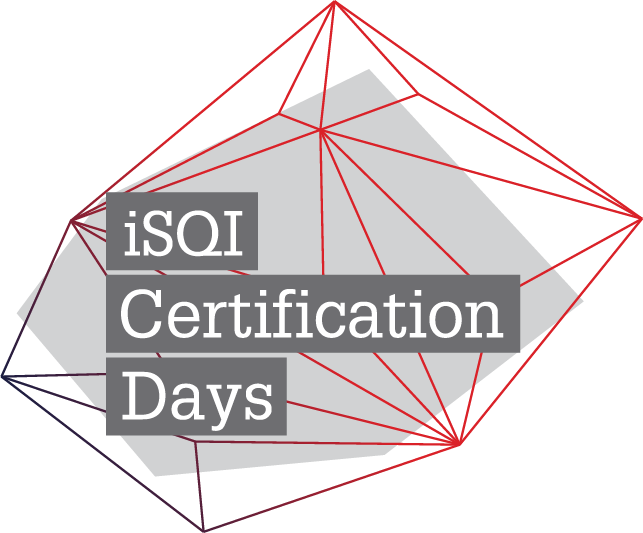How to apply for jobs in Germany? Where to find help? Where to get your certificates recognized? You will find this in the article and more.
Outsourcing: An unadulterated view from the outside
Outsourcing IT services continues to be a popular strategy in industrialized countries as; the US, China, Japan, Germany, the UK and France (the six strongest economies after GDP 2018). The aim of outsourcing is to benefit from cheaper and well-trained specialists. According to the Worldwide Software Testing Practices Report, prepared by the ISTQB in 2016, up to 40% of the development budget is spent on software testing. According to current estimates, spending on testing is even higher today cause the various industries have expanded their areas for software testing.
However, there is another reason why outsourcing services is beneficial. Especially when testing applications, it proves to be very effective when other software testers look at the new product unbiased from the outside. Externals can see the „customer view“ much better. This is what makes them so valuable. In addition to good prices and training.
Eastern Europe quickly rising
Let’s take a look at the other side of outsourcing. Which countries deliver to industrialized countries? In addition to the traditional big IT players such as India, China and Thailand, there are more and more countries that are geographically closer to the countries in demand.
In Germany, the trend is also shifting towards nearshoring. This type of offshoring, i.e. the outsourcing of locations abroad, in fact also means that companies are no longer recruiting predominantly overseas, but are taking into consideration countries which are geographically closer too. Neighbouring countries with lower language, cultural and geographical barriers are preferred. Central and Eastern Europe are rising quickly to the top for Europe. For example, Poland ranks among the top ten countries in a global comparison in various indices. Bulgaria, Romania, Russia, Latvia and Ukraine follow closely. In principle, in such rankings all places behind the ten largest countries are occupied by Eastern European countries.
https://infobest.de/die-top-outsourcing-lander-2016.
It’s hardly surprising that this is the case. The countries are either part of the European Union or at least oriented towards the West. Business trips by plane take a maximum of two or three hours.Even if these countries do not offer the lowest prices in the world, the lower cost for Europeans, financially also pays off. Simultaneously, these according countries are rapidly developing into top-quality IT service providers, with technology hubs, conferences and training centres. In Poland, Ukraine or Romania, the IT sector is the driving force. European companies are desperately looking for IT specialists.
How skilled workers are selected in Germany?
According to the German Federal Employment Agency, there are almost 1.5 million vacancies in Germany. Above all, the lack of skilled workers seems to cause problems for the personnel departments in Germany. More than 90 percent of companies are concerned about filling vacancies and 41 percent of companies consider the problem of finding skilled workers to be urgent or even existential. Above all, German companies are looking for skilled workers for IT services and mainly use paid job portals such as indeed.com or stepstone.de for this purpose. However, there seems to be a difference between city and country. In rural areas, jobs are less frequently advertised online.
OUR TIP
Apply outside large cities directly via the company websites or if you have the opportunity, take a look at the job advertisements in local newspapers and magazines.
Depending on the size of the company, personnel is scouted in different ways. The larger the company, there are additional strategies. Different channels are used and specialists are addressed on different levels, online and analogue. Smaller companies use fewer opportunities and spend less money.
OUR TIP
Don’t be afraid to share your skills and job wishes as often as possible and on different platforms. More than half of all German companies have created incentive programs for their own employees and reward a successful recommendation of suitable candidates for an advertised position. Use your certificates and digital badges. They help visualize your skills best.
It will be easier for IT applicants from Eastern Europe
Reason being, more and more vacancies cannot be filled in Germany and the country is also ageing in the long-term. Due to a decline in birth rate, the German government recently passed a new law. This law will come into force in March 2020 and is intended to attract larger numbers of skilled workers. In principle, this new law will ease the conditions for foreign applicants. For example, companies that advertise jobs no longer have to prove that there are no German applicants or from the European Union. This means that they can advertise internationally and foreign skilled workers can apply directly for the jobs. There are special simplifications for IT specialists. They don’t need to prove that they have completed a certification/degree and are still allowed to immigrate to Germany. The prerequisite would be that they can prove at least 3 years of professional experience and have the skills.
Unfortunately, immigration is still not uncomplicated. There are still a number of obstacles that make it difficult for non-EU citizens to take up employment. Working in Germany is subject to many laws and regulations.
Citizens from Australia, New Zealand, the USA, Canada, Israel, Japan and the Republic of Korea are allowed to enter without a visa.However, they require a residence permit for a stay longer than three months and taking up employment. This can be applied at the local immigration authorities. The rules can vary from region to region, the responsibility is not regulated throughout Germany, but is based on state law. Most administrative districts have their own foreigners authority, sometimes also called Auslaenderamt.
OUR TIP
Inquire where to find the immigration office responsible for you. Have a look on the Internet for this.
Citizens from all other countries must apply for a visa or residence permit in their home country before entering Germany. You can get both at the German embassy or consulate. These documents also indicate which conditions apply to taking up work, how long they may work or which activities may be carried out. More about this can be found on the buzer.de website. This private initiative lists current federal laws and publish them on the Internet.
The following link leads to the Ordinance on the Employment of Foreign Nationals (Employment Ordinance – BeschV) as of September 2019: http://www.buzer.de/gesetz/10683/index.htm. This page is in German.
In general, most of the websites with information for foreign workers of ministries and offices are mainly in German. This seems unfitting in many cases, but cannot be changed. Translation programs such as Google Translator or Deepl help can be very helpful. Deepl in particular is a tool developed by German linguists and is currently expected to provide the best results in translation.
After entry
Different rules apply to different qualifications. Which training courses and which qualifications are sought in Germany and how professionals education will be proved by German authorities can be found out on the website https://www.anerkennung-in-deutschland.de/html/de/. This can be done quite simply via an input field. There you type in your occupation, the job title or the certificate and you will get fast results.
Now, enter the location in which you would like to work in Germany. In this example: Berlin and you will receive all the information needed to apply for professional recognition.
The responsible office for IT developers who want to apply for jobs in Berlin is the German Chamber of Industry and Commerce (IHK – Deutsche Industrie und Handelskammern) FOSA in Ulmenstraße 52g in 90443 Nuremberg.
Telephone: +49 911 81506 0
Fax: +49 911 81506 100
E-mail: info@ihk-fosa.de
Website: http://www.ihk-fosa.de
Before submitting an application to the IHK FOSA, it is recommended that you seek personal advice from the IHK in Berlin. This can also be done by telephone. The addresses of all regional IHKs can be found by entering the postcode here: http://www.ihk-fosa.de/fuer-antragstellende/beratung/vor-ort/.
Instructions and information about recognition, evaluation of certificates and other information pages on the Internet can be found here: https://anabin.kmk.org/kurzanleitung/ich-moechte-in-deutschland-berufstaetig-werden-und-die-fuer-meinen-hochschulabschlussberufsabschluss-zustaendige-anerkennungsstelle-ermitteln.html
The same applies to everyone: good knowledge of German and a corresponding qualification must be proven.
Information on the language certificate:
The following website provides clear information on how to obtain a Blue Card for the EU, who can obtain it and what requirements must be met:
http://www.bamf.de/DE/Willkommen/Aufenthalt/WichtigeInformationen/wichtigeinformationen-node.html
https://www.bva.bund.de/DE/Services/Buerger/Migration-Integration/Spaetaussiedler/01_Antrag_stellen/06_Sprachnachweis/Sprachnachweise_node.html
Here is another link from the city of Hamburg, which explains very clearly recognised certificates such as; Goethe-Zertifikat, telc Deutsch or ÖSD Zertifikat: https://welcome.hamburg.de/allgemeines/10903602/sprachnachweis/
ALTE (Association of Language Test Providers) is an association of language test providers and organizes courses and conferences on language assessment:
https://www.alte.org/Our-Full-Members
Job search: Portals for applicants – Here are the jobs
Work permit
Foreigners from third countries (countries outside the EU, the EEA and Switzerland) may only work in Germany, if this is stated in the residence permit. For EU citizens and citizens from EEA states as well as Switzerland, the free movement of workers generally applies. Detailed information can be obtained from the competent immigration authority in your place of residence. http://www.bamf.de/DE/Willkommen/Aufenthalt/WichtigeInformationen/wichtigeinformationen-node.html
For non-EU citizens, settling in Germany is tied to a job. Therefore, is very important to find a job. For IT specialists this is not difficult at the moment (provided the know-how is available and can be proven). Germany is looking for IT workers.
Where employers advertise jobs, indicated accordingly.
https://www.markt.de/ratgeber/jobs-karriere/Arbeiten-in-Deutschland/
Job boards are still the most important channel for companies to find applicants. According to Job Market Compass and Crosswater Job Market Directory, approximately 95 million users use job portals every month. In Germany alone, there are over 1000 pages that are specially designed for the publication of jobs online. The most important of them, especially for IT specialists, are the following:
Indeed.com: Has been around for many years and is available in about 60 countries around the world. According to Wikipedia, Indeed.com is the „most visited job search site in the USA. It is also one of the most important job exchanges in Germany.
Stepstone.de is a German platform and has specialized primarily in technical and high-level personnel. There is a radius search here and you can search for certain details.
Moster.de is the third most successful job exchange in Germany. Here you will find many jobs in Europe. Besides the side gives many tips for the career planning.
Enter the postcode and you can find offers at meinestadt.de. This is helpful once you already have a certain region in Germany in mind.
Jobs can also be found via contact networks Xing and LinkedIn.
An excellent search engine for students and career starters is staufenbiel.de. There are over 6000 jobs here, which are primarily aimed at young (and young-at-heart) workers. A view into the database is worthwhile surely for foreign workers too.
You will quickly notice that many companies in Germany require certificates or other training. Usually, you will find the conditions in the job descriptions.











